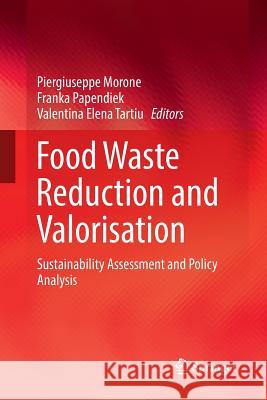Food Waste Reduction and Valorisation: Sustainability Assessment and Policy Analysis » książka
topmenu
Food Waste Reduction and Valorisation: Sustainability Assessment and Policy Analysis
ISBN-13: 9783319843148 / Angielski / Miękka / 2018 / 327 str.
Kategorie:
Kategorie BISAC:
Wydawca:
Springer
Język:
Angielski
ISBN-13:
9783319843148
Rok wydania:
2018
Wydanie:
Softcover Repri
Ilość stron:
327
Waga:
0.50 kg
Wymiary:
23.29 x 16.18 x 1.78
Oprawa:
Miękka
Wolumenów:
01
Dodatkowe informacje:
Wydanie ilustrowane











